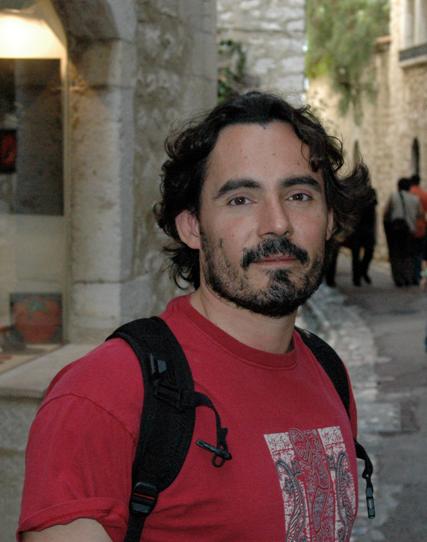
Dr Frédéric Gazeau
 My role in EPOCA Arctic
My role in EPOCA Arctic
I will conduct experiments on the effect of ocean acidification on the functioning of soft bottom sediments (studies 1 and 2). We will incubate sediment samples under different levels of acidity for more than a month and quantify the fluxes of different compounds such as dissolved nitrogen or carbon and the potential alteration of these fluxes by seawater acidification. More specifically, my role will be to prepare the experiment by placing sediment samples in plastic containers and to connect these containers to the different big seawater tanks where the pH is regulated (see service 1). We will take care that the water flow above the sediment samples is constant (using small pumps) and that the pH conditions above the sediment samples are the same than in the big header tanks. Once a week, we will close the seawater flow from the big tanks and incubate each sediment sample in the dark for 24 hours. By measuring the concentration of different compounds in the water above the sediment before and after these 24 hour incubations we will estimate what was produced and/or consumed by the sediment at the different pH levels. At the end of the experiment (after one month), we will have a closer look at the biology in the sediment samples and quantify the capacity of the animals present in these samples to mix and irrigate the sediment. As part of service 2, I will also help to organise and measure the seawater carbon chemistry in the header tanks and provide results to all the participants involved in these studies.
My thoughts on the trip
This will be my first trip in the Arctic and I am really looking for it since… well maybe since I was born. That is to say, I am really excited to participate in this experiment. So far, the preparation of this trip has involved discussions about the experiments, filling out different forms and organising the trip itself (booking hotels and flights). I hope everything will be fine once we are there; that the experiments will be successful and that we will have time to explore the nature around the institute between two measurements!
More about my research
After several years at the Netherlands Institute of Ecology in Yerseke (The Netherlands), I obtained a fixed position at the Laboratoire d’Oceanographie de Villefranche (France) where I did my PhD (2001-2004). I have been working on the ocean acidification issue since 2006 and published a paper showing that both mussels and oysters will decrease the speed at which they produce their shell (a process called calcification) under increasing atmospheric carbon dioxide concentrations. I am currently writing other related papers as well as planning and preparing new experiments (among which the Svalbard one).



